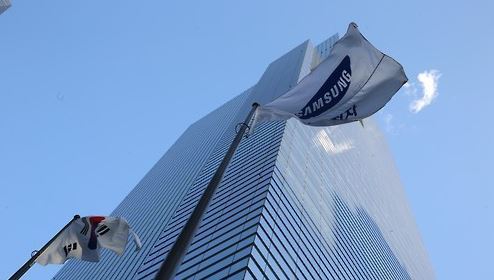Samsung Electronics to hand out record high incentive payments to partners
By YonhapPublished : July 15, 2018 - 10:33
Samsung Electronics Co. plans to hand out record-high incentive payments for the first half of the year to its semiconductor business partners this month amid a boom in sales, industry sources said Sunday.
The move reflects the continuing strength of the global super cycle for chips, which has helped Samsung post strong earnings so far in 2018.
The move reflects the continuing strength of the global super cycle for chips, which has helped Samsung post strong earnings so far in 2018.

The amount to be offered has not been announced, but it could exceed 22 billion won ($19.4 million), observers speculated. In the first half of last year, Samsung gave a little over 20.1 billion won in incentive bonuses to employees working at partner firms.
Samsung said its net profit reached 11.6 trillion won for the January-March period, compared with 7.6 trillion won a year earlier.
"The incentive payments will go to some 10,000 employees working at Samsung's partners to not only boost morale in such firms but contribute to overall domestic consumption," a market watcher said. He pointed out that Samsung started giving incentive payments in 2010. The world's largest producer of semiconductors and smartphones has often been accused on pressuring its partners to slash the prices of components and services they provide to the global company.
The company provides two types of incentives -- one centered on production and quality control and the other, introduced in 2013, focusing on helping firms become more engaged in industrial safety and environmental contribution.
Observers said that since Samsung has traditionally given more incentive payments in the second half, the total it may offer to workers at suppliers could easily exceed 50 billion won.
In addition, the flagship company of Samsung Group, Korea's largest family-run conglomerate is forecast to increase the assistance funds it offers to partner companies this year from the 822.8 billion won it gave in 2017.
Since 2005, the company has been making all its settling accounts with partner companies in cash, and it even created a specialized fund so its first tier vendors can pay it second tier vendors in cash instead of promissory notes.
Despite such efforts, there have been consistent complaints that taking into account how much money Sasmung has been making, the incentive payments it has given and its creation of support funds are inadequate and the company needs to do more to ensure fair and equitable growth. (Yonhap)








![[KH Explains] How should Korea adjust its trade defenses against Chinese EVs?](http://res.heraldm.com/phpwas/restmb_idxmake.php?idx=644&simg=/content/image/2024/04/15/20240415050562_0.jpg&u=20240415144419)











![[Today’s K-pop] Stray Kids to return soon: report](http://res.heraldm.com/phpwas/restmb_idxmake.php?idx=642&simg=/content/image/2024/04/16/20240416050713_0.jpg&u=)